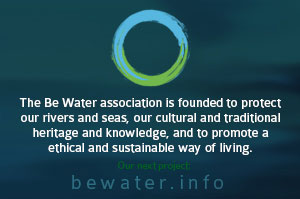
I write sitting on a nice sofa, in this beautiful Café Mozaic that smells of past although it’s placed in a modern building. A soprano sax lightly dances between cultures, while the muezzin softly calls the prayers from the minaret. Outside, I can see the heavy shape of the archaeological museum, Cuban houses ruined but still lived-in, empty roman sepulchres, gravestones, antiquarians laying on their bronzes, sweet and polite straw dogs. The wind blows strong. And homesick Ovid looks to the sea. In front od him, they’ve built a “Spizzico” pizzeria. I could die here, now, for this imperfectly perfect beauty.
 Constanta already won my heart. How many hearts should I own to withstand this journey? When I think to the complaints and to the boredom of many travel companions, I wonder how it’s possible not to fall in love of this ever changing world. And smile.
Constanta already won my heart. How many hearts should I own to withstand this journey? When I think to the complaints and to the boredom of many travel companions, I wonder how it’s possible not to fall in love of this ever changing world. And smile.
Would it be just ignorance? Ignorance to me is a strange animal, it hangs on your back like a cat and never lets you go.
It’s a constant complaint, an absence of curiosity and smile, an inability to solve the problems, the incapacity to learn how to enjoy them. And often it’s everybody else fault. You don’t realize that this is your cat. I’ve met wise and cultured, although illiterate, Albanian shepherds, and philosophy (meaning “friends of wisdom”) graduates who were ignorant as goats and blamed the school for their lack of education.
Like if everything else, the current huge richness of sources of information, wasn’t there for them too. And cultural sciences graduates who weren’t cultivated at all, rather dull I would say. They complained, resigned, about their lack of memory. What’s does it all of this got to do with the journey? A lot, it’s the backbone and the keel of this essential tool of knowledge. Traveling to learn and so to live. We go beyond sheer survival that often flattens the richness lying underneath.
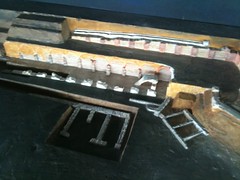 In Constanta the Romans had built four terraces next to the sea, and the city was developed on these huge platforms. Up and down. There were warehouses, thermae, markets, houses, temples, theatres and, down below, Port Tomis, that was founded by the Greeks. Today, the old city is buried under the most recent buildings, including the new, ugly and unbearable Constanta. Blocks of concrete that crumbles to the wind and to the winter ice. Thanks God. I quietly wait.
In Constanta the Romans had built four terraces next to the sea, and the city was developed on these huge platforms. Up and down. There were warehouses, thermae, markets, houses, temples, theatres and, down below, Port Tomis, that was founded by the Greeks. Today, the old city is buried under the most recent buildings, including the new, ugly and unbearable Constanta. Blocks of concrete that crumbles to the wind and to the winter ice. Thanks God. I quietly wait.
Ugliness calls ugliness. Nearly every time. Sooner or later, though, the empty end abandoned concrete monster dominating the port from Ovid square, will be taken down. It’s the scar left by some nouveau riche. People throw rocks at it, break windows, defecate inside of it: A garbage dump in the city center. Do you get the ignorance? Under here there’s a treasure, a nearly untouched Roman city. I could see some mosaics and the old warehouses close to the commercial port. They’re spectacular!!
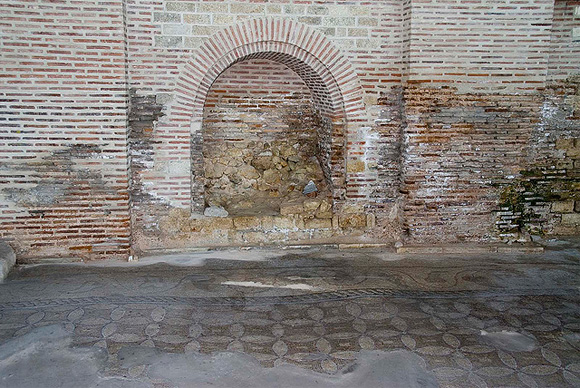
The archaeological museum is full of artifacts from the Neolithic to the modern times. I got moved by some golden jewels and a collection of glasses. To reveal you have first to uncover.
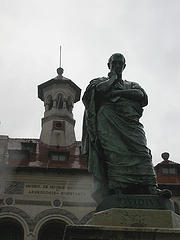 Publius Ovidius Naso was exiled in Constanta by emperor Augustus for 9 years. Here he’s nearly a divinity, with many dedications, despite his continuous pledges to the emperor to allow him get back in Rome, away from barbarians. Funny, thinking that at the time this wasn’t a bad place to live. But Rome was Rome, I understand. Maybe, though, Ovid was a little… ignorant, from my point of view. However I better take care of my own, big, ignorance before becoming too arrogant.
Publius Ovidius Naso was exiled in Constanta by emperor Augustus for 9 years. Here he’s nearly a divinity, with many dedications, despite his continuous pledges to the emperor to allow him get back in Rome, away from barbarians. Funny, thinking that at the time this wasn’t a bad place to live. But Rome was Rome, I understand. Maybe, though, Ovid was a little… ignorant, from my point of view. However I better take care of my own, big, ignorance before becoming too arrogant.
Let’s rewind. I spent some time in Tulcea, where I’ve arrived on the way back from the Danube delta. 200 km, a hundred of which towed by a barge of woodcutters to go against the current. To pay them back, I offered my help for a couple of hours, breaking my back.
It’s a very tough job: Getting off on the Danube islands, in the mud, to load 50 kg logs and then, wearing slippers, coming back aboard the barge across a slippery gangway. Gnats and snakes. Wounded shoulders, ants in the ears. Generous iron men, with very poor wages but always smiling. Thanks, friends from Campeni, that’s the name of the barge.
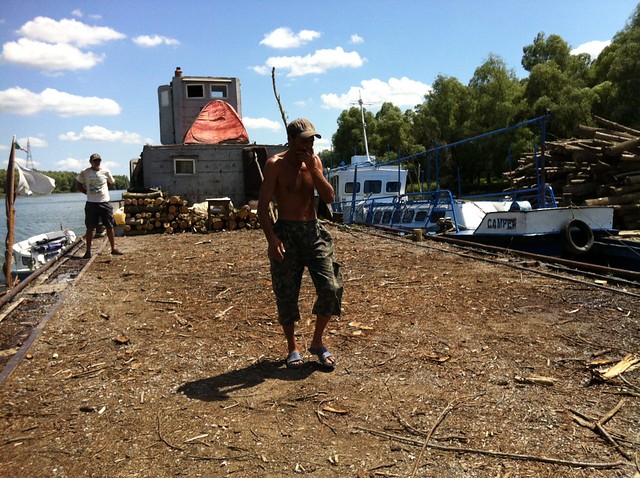
In Tulcea I’ve been guest of Victor for ten days and I’ve seen the launch of Patzaikin houseboat built by Victor and Paul.
 I’ve traveled along the Danube, in the delta, on the wonderful lake of Razim that was part of the sea. I’ve visited the Genoese fortress of Enisala aboard the boat of Jenica, great expert of plants and data sharing systems. He told me all he had learned about the plant-geography in the delta.
I’ve traveled along the Danube, in the delta, on the wonderful lake of Razim that was part of the sea. I’ve visited the Genoese fortress of Enisala aboard the boat of Jenica, great expert of plants and data sharing systems. He told me all he had learned about the plant-geography in the delta.
I’ve drunk the water of Enisala’s well, from an holed bucket, and visited the museum and the aquarium of Tulcea, where the pool is heart shaped. Then I’ve spent some days to repair Clodia in Paul Vassiliu workshop, and stayed aboard Carina, the Bristol Pilot Cutter of Saulius and Ruta. I talked with them about the future project and about how to live with less. With less we can do more.
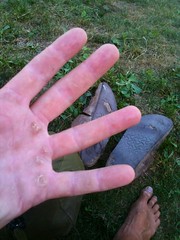 The shoes, worn out from many kilometers, have been repaired by a nice Viking shoemaker. The callused hands have taken a little rest.
The shoes, worn out from many kilometers, have been repaired by a nice Viking shoemaker. The callused hands have taken a little rest.
4.600 km until now, not bad. Too fast, I should have traveled slower to understand more. It takes time.
Like in Sfantu Gheorghe, where I get back when the current kindly helps me. I meet Saulius and Ruta and I stay two days in the nature. Silence.
I sleep on Carina’s deck, under a mosquito net, but thousand of gnats bite me. How can they get through? How many litres of my blood would they have drunk? How horrible.
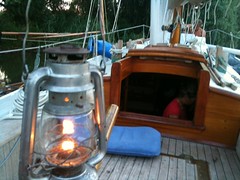 On the cloth covering the boom, they’re always making a queue, they look like the Apaches on the hill from Stagecoach. Ready to attack to the death.
On the cloth covering the boom, they’re always making a queue, they look like the Apaches on the hill from Stagecoach. Ready to attack to the death.
The delta is not an estuary, it’s made by a thousand waterways feeding a fluid lung and a many lives. Like the huge pelicans flying with true grace, despite their big beak. Baudelaire’s albatross would pale…
 And fishes, and very loud frogs! Wild horses and boars. And campers, too many of them, to shoot down: They light fires where it’s not allowed.
And fishes, and very loud frogs! Wild horses and boars. And campers, too many of them, to shoot down: They light fires where it’s not allowed.
And motor boat navigators, to wipe off. Loud, ill-mannered, polluting. The delta’s death. It’s a shame in an area declared World’s Heritage Site. No sign of controls, it’s a competition of power and speed. Shame on you!
Sfantu Gheorghe could be a dream. Sandways, lipovan houses, animals, beautiful beach, the Danube meeting the Black Sea.
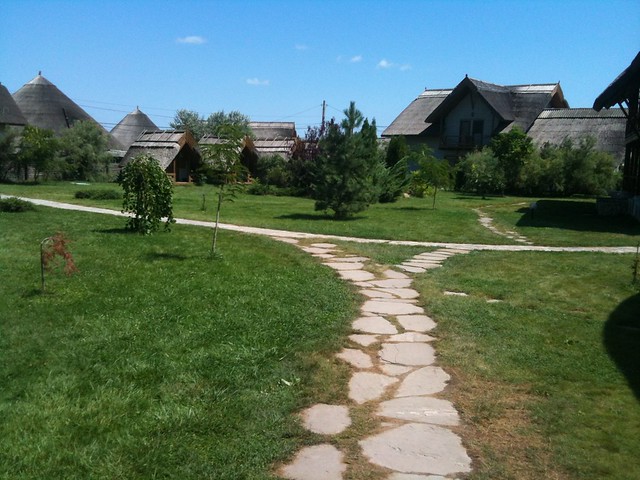
However the first seeds of a civilisation sick of carelessness and ignorance have been planted. Rumors, shouts, motors, tattoos that are scars, on everything. I’m obsessed by this tattoo fashion. I’ve read on a local magazine that Romania, second only to Italy, it’s the country with the highest number of tattoos. Are people so bored that they need a tattoo? But our skin is made to be free, it’s a complex, living thing. And simple at the same time, like nature. How sad.
 The Anonimul Film festival, the world’s most remote independent cinema event, gives me some nice emotions. The Romanian cinema surprises me, especially the movie “Men and snails”, likeable portrait of the post-Ceausescu situation. The director Mirena Berescu (blond, tall, beautiful and nice) tells me about the bound with water. I see also a poetic yet very tough documentary about the Tsunami, by an American filmmaker.
The Anonimul Film festival, the world’s most remote independent cinema event, gives me some nice emotions. The Romanian cinema surprises me, especially the movie “Men and snails”, likeable portrait of the post-Ceausescu situation. The director Mirena Berescu (blond, tall, beautiful and nice) tells me about the bound with water. I see also a poetic yet very tough documentary about the Tsunami, by an American filmmaker.
Just the water.
Empty your mind
Be formless, shapeless,
Like water
You put water in bottle it becomes the bottle
You put water in a cup it becomes the cup
You put the water in teapot it becomes the teapot
Water can flow or it can crash
Be water my friend
Be water
Bruce Lee
Around here there’s also an historical reenactment aiming to show the glory of the XII Roman legion. A group of Bulgarians faithfully reconstructs it all, from food to weapons. Picturesque, evocative but also a little kitsch. Looking at them sipping a coffee in the bar, dressed like centurions, is rather funny. With the cell phone, it becomes surreal. Now they’re marching and shouting, in a while they will fight against the Dacians. Ovid doesn’t smile.
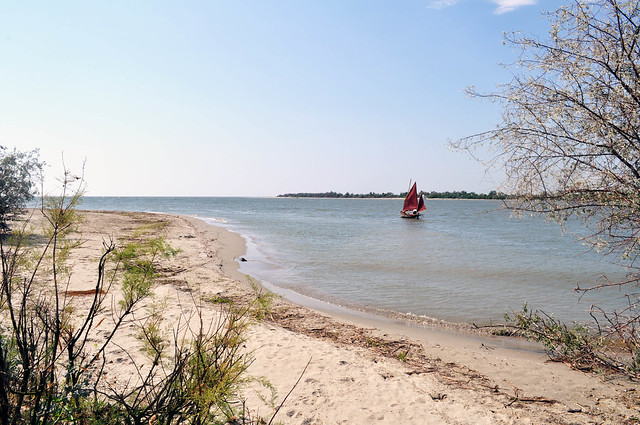
I’ve sailed in the Black Sea: Not easy. We left in the evening from Sfantu Georghe, and we experienced some troubles to get off the shallow Danube waters with Carina. Then we sailed close to the coast, against a south easterly wind. In the night, the wind has turned, at first from west, then from north-west, up to 25 knots. The waves were very steep for me: I was worried so I decided to get towed by the Lithuanians on their sailboat and we covered 67 miles.
 Then, just before Constanta, I took my way by raising the sails, while the wind didn’t look like fading.
Then, just before Constanta, I took my way by raising the sails, while the wind didn’t look like fading.
The beautiful marina of Port Tomis grants me free mooring. I’m very happy here. There’s a special place, the Manarola restaurant, with its nice owner, Aida. Excellent food and elegance, but I can’t afford to eat there often.
I also like the old hotel palace built in 1914, on the port, and the casino from 1904, in a spectacular state of abandon.

Now I’m planning how to proceed towards Istanbul, since the weather is changing and the Black Sea can be dangerous for Clodia and me.
A big hug.
